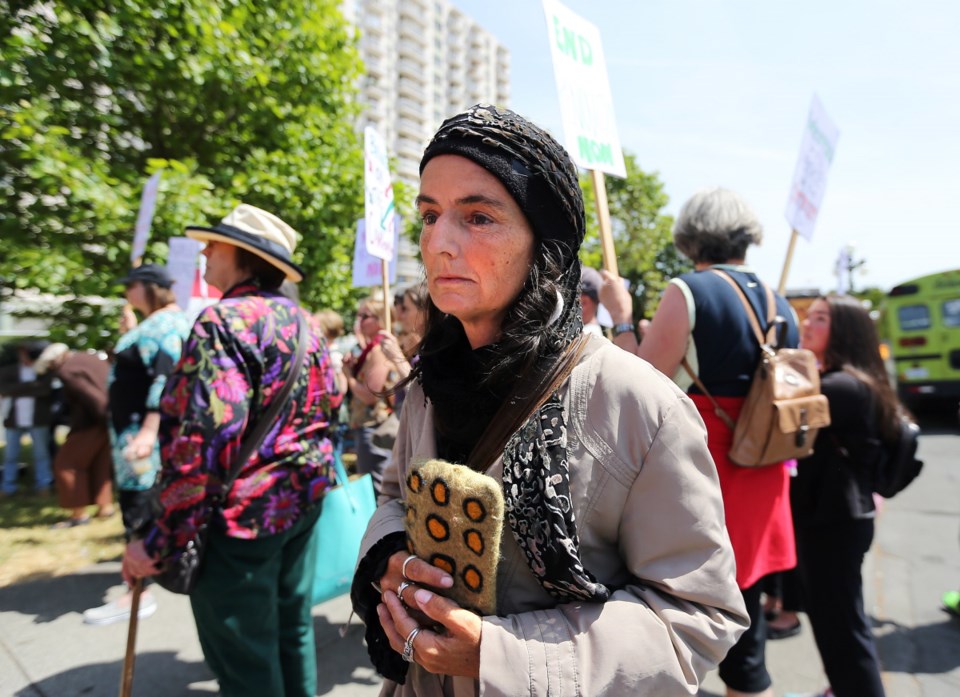A Toronto-based tenants advocate says the mass eviction of 70 View Towers residents following a fire last month could not happen in Ontario because that province’s legislation has better protections for renters.
Many residents displaced after the May 15 fire were asked to sign mutual agreements to end tenancy to secure their damage deposits and half month’s rent — something they later found out they were not legally required to do.
Some long-term tenants have also discovered they’ve been kicked out despite having little to no damage to their suites and are facing higher rents at other downtown apartments.
“A landlord wouldn’t be able to get away with this in Toronto because the Residential Tenancies Act has very clear guidelines and protections around when a landlord can evict a tenant,” said Geordie Dent, executive director for the Federation of Metro Tenants’ Association in Toronto. Dent was in Victoria last week and has been following the situation affecting View Towers residents.
“If a landlord [in Ontario] was doing what this landlord and development company is doing right now, they would immediately have an emergency hearing within a week at the Landlord and Tenant Board.”
View Towers is owned by Vancouver-based Westsea Construction Ltd. and Edmonton-based Capital Management Ltd., both run by Julie Trache.
Trache has repeatedly turned down requests for comment.
Victoria advocacy group Together Against Poverty said the owner of View Towers has not provided displaced tenants with a breakdown of the damage to each suite, so there’s no way to know if a suite is actually uninhabitable.
One man who has lived in View Towers for 25 years, Herb Volker, was told his ceiling had collapsed and later found out that wasn’t the case.
Dent pointed to an example of a major fire in a Toronto apartment that displaced 900 people in 2008. It was the role of the fire marshal or public health officer to determine the level of damage to each suite.
“It would not be left to the whim of the landlord,” he said.
One View Towers resident, Rebecca White, was told if she wants to recover her furniture, she’d have to pay up to $20,000 to get it professionally cleaned to ensure there’s no asbestos contamination.
B.C. renters also have fewer legal supports because of drastic cuts to legal aid funding in the province, said Dent, who is originally from B.C. and worked on housing issues in the Downtown Eastside. Last year, B.C. ranked 10th out of 13 provinces and territories on legal-aid funding per capita, according to the Canadian Bar Association’s B.C. branch.
Dent said that in Ontario, legal aid could step in and quash the mutual agreements to end tenancy “because they were contracts that were coerced obstructed or done under duress.”
The situation where displaced renters were not offered one of the dozens of vacant suites in View Towers would also be illegal in Ontario, which has a security of tenure clause in the Residential Tenancies Act that requires a landlord to provide a displaced tenant “a reasonable alternative if one exists,” Dent said.
“The unfortunate [situation] in British Columbia is that the province has not set up sufficient safeguards to protect tenants in this scenario.”
Russ Godfrey, a legal advocate with the Tenant Resource and Advisory Centre, said View Towers has a moral obligation but not a legal obligation to offer tenants one of the vacant suites.
Godfrey, who worked for the Residential Tenancy Branch for 16 years, called B.C.’s legislation “toothless.”
It has only laid one fine in its entire history, in March 2012 when it fined Surrey landlord Gurdyal Singh Sahota $115,000 for ignoring orders to remove mould and repair water damage. However, the branch agreed to waive the fine if the landlord met all the terms, which included finishing work on the property and offering tenants a settlement package.
Victoria-Beacon Hill MLA Carole James has said B.C.’s tenancy act has to be reformed to include better protections for tenants. James said B.C. Housing and the Ministry of Social Development should be stepping in to demand answers on the behalf of vulnerable, low-income residents.
“At a time when we know the challenge of affordable housing, I find it very frustrating that we’re not getting clear answers,” James said.
Minister of Energy and Mines, Rich Coleman, who also overseas the B.C. Housing portfolio, did not return calls for comment. A spokesman for the Residential Tenancy Branch said tenants can apply for dispute resolution if they believe damage to rental unit is not so extensive as to frustrate the agreement. The tenant can ask for an order of possession of the rental unit or claim compensation and request repairs to the rental unit.



